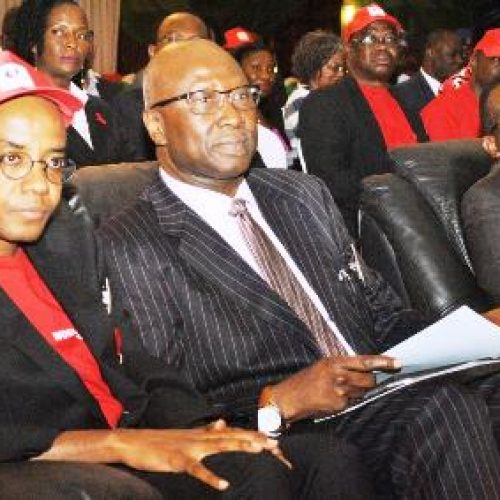Drop NGO Bill, CSOs urges NASS
Abuja – Civil society organizations in Nigeria have called on the National Assembly to stop its proposed enactment of an Act to provide for the establishment of Non-Governmental Organisations Regulatory Commission.
Once enacted, the Act will make the Commission responsible for supervision, coordination and monitoring of non-governmental organisations, civil society organisations among others in Nigeria and for related matters.
At a briefing in Abuja on December 13, the Country Director, Global Rights, Mrs Abiodun Baiyewu, who spoke for the CSOs, said such an Act would portray the Federal Government as being despotic, and would stifle the activities of non-governmental organizations in Nigeria.
Baiyewu said the proposed Act, for which the Bill has gone through first and second reading and at present at the Committee phase at the House of Representative, negated Federal Government policy on the ease of doing business in the country.
She said there were existing laws regulating the CSOs, and that the new law being proposed would only disregard such laws, by adding nothing new, but achieve specific agenda which she said the Federal Government wanted it to achieve.
“It will become evident shortly that the Bill under consideration makes no contribution to the existing legislation regulating voluntary societies in Nigeria. In many essential respects, it lowers existing legislative standards. It also overreaches the constitution; damages Nigeria’s economy; and potentially diminishes the efficacy of Nigeria’s efforts on the ease of doing business. On the whole, the Bill risks being seen as damaging the credibility of government,” she said.
Some of the agenda of government for the proposed Act, Baiyewu listed, include a proposal for the establishment of NGO Regulatory Commission which will be headed by an Executive Secretary appointed by the President for five years and a 17-member Governing Board.
The commission, according to the bill would be led by a Chairman, all of whom shall also be appointed by the President. The Board will have powers to license all NGOs.
“Without the license of the Board, no NGO can operate. The license of the NGO Board alone (not registration with the Corporate Affairs Commission) will confer legal personality and perpetual succession on NGOs. However, such a license must be renewed every two years. If not, legal personality is lost.
“The Board can refuse renewal for no reason. It can also waive all the requirements of the law, including registration. The Minister can direct the Board at his whim as he deems fit, including, presumably, to register or de-register any NGO.
“All NGOs must submit reports of their money to the Board , where they get it from and how much. Before an NGO spends any money received, it must secure the permission of the NGO Board. If it does not, it violates the law and has committed a crime under the Bill.
“The Board will also license NGOs on co-operation with international bodies. The Bill requires NGOs to comply not merely with all laws but also with “all national and foreign policies”, whatever that means. Any violation of the Bill when passed into law is a crime punishable with up to 18 months in prison.
“The Board will enjoy substantial immunities under the law and from process and any judgement against it cannot be enforced except with the express permission of the serving Attorney-General of the Federation.
“The functions of the Board as proposed by the Bill includes to facilitate, regulate and co- ordinate the work of all national and international organisations working in Nigeria, including the issuance of work permits. The Bill also empowers the Board to provide policy guidelines to Non-Governmental Organisations for harmonizing of their activities to the national development plan for Nigeria,” she said.
She listed the laws within the country which regulate NGOs/CSOs to include the Constitution of Nigeria, 1999; Companies and Allied Matters Act (CAMA) 2004; Companies Income Tax Act (CITA); Taxes and Levies (Approved List for Collection) Act 1998; Value Added Tax Act (1993); VAT Amendment Act (2007); Federal Inland Revenue Service (Establishment) Act 2007.
Others are the National Planning Commission Act; EFCC Act and the Central Bank of Nigeria Act (2007) – compliance sections; and Banking and other Financial Institutions Act (1991) – compliance sections.
About author
You might also like
Hope rises for HIV patients, others as NASS vows to implement NH Act
ABUJA – Nigeria’s health sector may get its biggest allocation ever if the Senate makes good its vow to fully implement the National Health Act 2014 in the 2018 national budget Chairman
WHO secures 2 billion doses of Covid-19 vaccines
deliveries expected to begin next month Tedros Ghebreyesus, WHO Director-General, says the organisation had secured two billion doses of the Covid-19 vaccine, with a billion more in the pipeline and
Rotary to commission N12.9m medical facilities in Ogun communities
Rotary Club of Maryland, Ikeja District 9110 will, next week, commission two fully-equipped medical facilities worth about 12.9 million in two rural communities in Ogun State. The facilities, according to






0 Comments
No Comments Yet!
You can be first to comment this post!